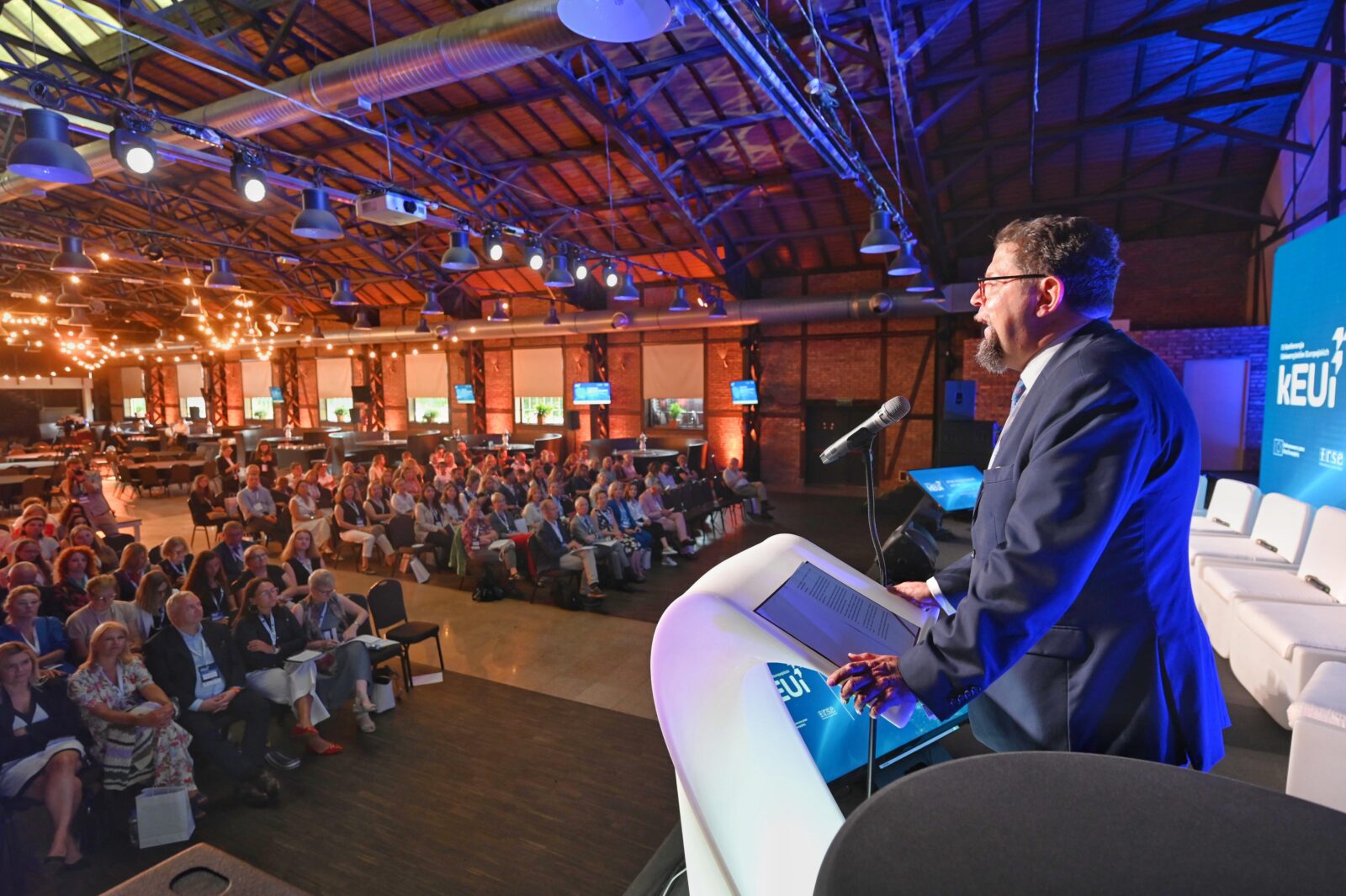
Alliance of European Universities – the way forward for modern science
On 5 September 2024, the 2nd European Universities Conference, organised by the Foundation for the Development of Education Systems, ends in Krakow. We could not miss it.
European Universities now comprises 64 international consortia bringing together more than 560 higher education institutions from across the continent In the 2024 intake, as many as 9 Polish universities are in new alliances under the European Universities initiative.
In Krakow, for the second time, participants shared their knowledge and experiences of European Universities The conference was packed with panels, discussions and presentations that addressed good practices as well as the challenges faced by Polish higher education institutions involved in international alliances
Five years ago, the European Commission began encouraging universities to form European academic alliances to remove barriers to the flow of students, staff and ideas
Is university integration likely to become a model for the next steps in building a common Europe What will be the future of universities in European alliances after the end of project funding How will their legal status affect the future of European universities These were the questions that were the focus of discussion at the 1st Katowice Conference.
The most important conclusions reached by the panellists at that time were the recognition of European alliances as a key factor in changes to the internationalisation of Polish universities Alliances require new forms of institutional governance: legal status will enhance cooperation within alliances and in a sense be a test for the strength of cooperation ties within them Strategic decisions are made jointly, autonomy and accountability seem to be an issue for leaders Giving the alliances a separate legal personality will certainly also be important for the future of their funding once this project is completed by the European Commission Alliances have strong ambitions not only for education, but also for research and development Joint activities – as a single legal entity – can be aimed at attracting additional sources of funding
The topic of European Universities was developed in Katowice by the Vice-Rector for Internationalisation of the University of Wrocław, dr hab. Patrycja Matusz, prof. UWr, who is also Plenipotentiary of the Minister of Science for European Affairs and the Presidency of the Republic of Poland in the Council of the European Union. In Katowice, Prof. Matusz spoke about the ‘European degree’, which is now a key document for internationalisation strategies for universities involved in European alliances. She also spoke about the priorities of the Polish Presidency of the Council of the EU and about planned events involving the higher education sector.
On 4 September, the 2nd Conference https://www.gov.pl/web/nauka/inauguracja-ii-konferencji-uniwersytetow-europejskich-z-udzialem-wiceministra-andrzeja-szeptyckiego
-According to dr hab. Patrycja Matusz, prof. UWr, the Alliance of European Universities is the only way forward for modern science. Wide-ranging, also in terms of geography, cooperation makes the university stronger and makes the mobility of students and scientists an everyday reality. More: https://www.frse.org.pl/eksperci-dla-frse/argus-sila-w-roznorodnosci oraz https://erasmusplus.org.pl/konferencja-uniwersytetow-europejskich.
complied by Katarzyna Górowicz-Maćkiewicz



